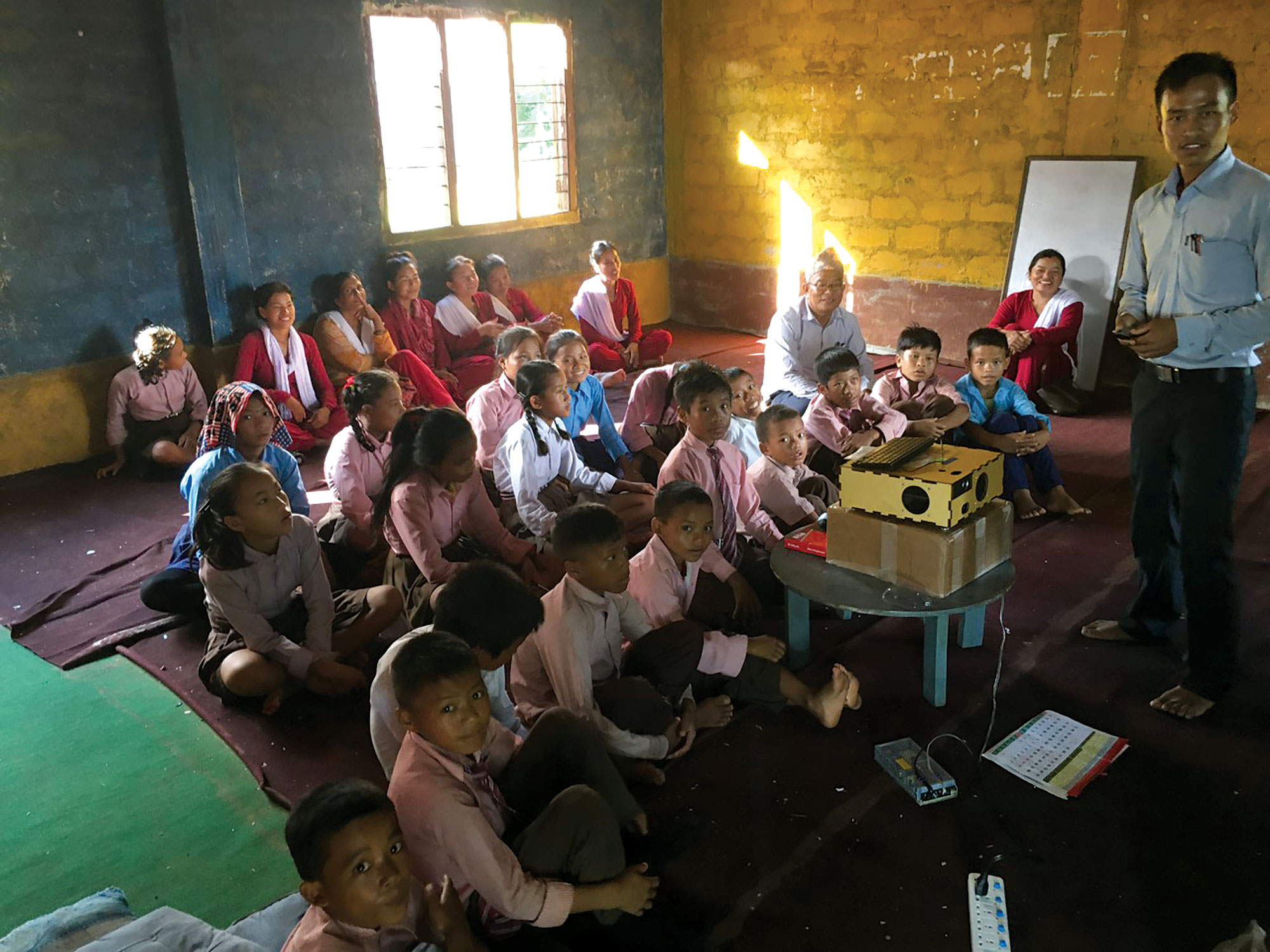David Sowerwine, ’61, MBA ’72, and Skip Stritter, MS ’69, PhD ’76, are accustomed to thinking outside the box, but in this case the box was the answer. Their solar-powered computer and audiovisual projector, housed in a 1-by-1-foot plywood case, allows teachers in Nepalese schools that have little or no electricity or Wi-Fi to vastly expand the amount of material available. They unpacked their “Looma box” for Stanford.
The epiphany. Sowerwine earned awards for innovating chasm-crossing wire bridges and low-wattage light bulbs while living in Nepal for 14 years, but his Looma box holds the most potential. “When I heard about superefficient LED projectors in 2011, I realized the problem of insufficient electricity and Wi-Fi in schools could be solved,” he says.
Super-streamlined. Assisted by software specialist Stritter, chief architect of the first Macintosh microprocessor, Sowerwine recruited volunteers and students (including Stanford engineering undergraduates) to refine the hardware, software and content of Looma boxes. The cost of the box and its contents is $1,000; solar panels and storage batteries add another $1,000.
Stuffed with stuff. Each 128 GB quad-core Odroid computer comes preloaded with most government-approved textbooks and 15,000 open-source media files, including Khan Academy courses, TED Talks, Wiki for Kids pages, history time lines, maps, educational games and videos covering all school subjects in Nepali and English for grades 1 through 10.
 Photo: Courtesy Looma Education Corp.
Photo: Courtesy Looma Education Corp.
Show, don’t tell. The AV projection system combines a 700-lumen LED projector with speakers, allowing the teacher, using a remote wand, to display content on a classroom wall while students hear and repeat English and Nepali words.
Ready for takeoff. The box is being used this year in 12 Nepalese schools, benefiting more than 3,000 students. There are plans to expand to 50 or more schools in 2020–21. “The open-source technology of the boxes makes them adaptable for use in any country,” says Sowerwine, who is in discussions with officials from Kenya and Sierra Leone to fund and deploy the Looma box in those countries. “These boxes can help to transform education in the developing world.”
Bob Cooper is a freelance writer.



